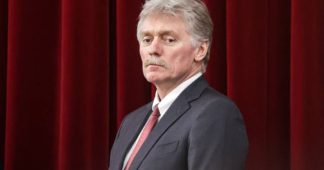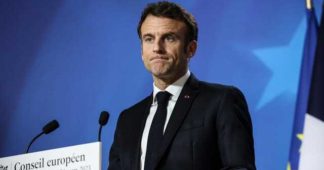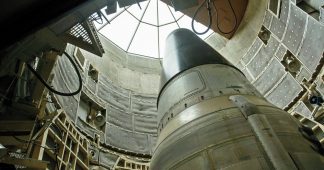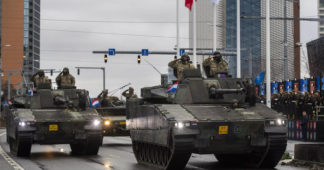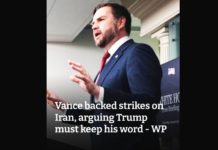Prime Minister Mark Carney has floated the notion of deploying Canadian troops to Ukraine. This would be mistake. Canadian soldiers should not be dispatched to that country. Instead, it’s time for Ottawa to change tack and promote a diplomatic resolution to the violent conflict.
In Kyiv Sunday Carney said Canada would consider sending troops to Ukraine. Responding to a question the prime minister noted, “I would not exclude the presence of troops.”
The next day defence minister David McGuinty repeated that Canada was considering sending troops.
These statements are troubling. Hawkish NATO ally Poland has already discounted dispatching troops to Ukraine while the question has prompted a lively debate in Germany.
Musing about deploying troops is part of Canada’s belligerent posture. Yesterday Carney announced an extension of the eight-year-old deployment on Russia’s border in Latvia until 2029 and in Kyiv Sunday Carney bombastically declared, “Putin has broken his word repeatedly, from Minsk to this morning. Putin has caused this terrible tragedy that has claimed the lives of millions. Putin menaces your skies, threatens your cities, destroys your fields. Putin has stolen your children. But Putin can be stopped. Russia’s economy is weakening. He is becoming more isolated. And our alliance is hardening.”
Carney’s comments have little connection to reality. This type of bombastic rhetoric is about convincing Ukrainians to continue fighting even if leads to ever more death and destruction.
Alongside the bombastic rhetoric, Carney announced details of a new $2 billion arms package. Ottawa will be giving/financing drones, munitions and other weapons to fight Russia. Over the past three years Canada has put up $6.5 billion for arms and $22 billion in total support for Ukraine.
Conversely, Ottawa— which claims to be supporting internal law — hasn’t sent any arms to the Palestinian resistance. In fact, it has criminalized Canadian support to those resisting a half century year old, repeatedly UN-condemned occupation force committing a holocaust in Gaza.
Yes, like Israel, Russia is violating international law. But Israeli criminality is on a completely different scale.
Additionally, Ottawa’s unnecessarily aggressive posture has stoked tensions with Russia. Despite knowing that NATO enlargement eastward and into Ukraine threatened Russia and risked a conflict, Canada promoted it. With 100,000 Russian troops amassed on the border, Canada’s then foreign minister Mélanie Joly went to Kyiv in mid-January 2022 reiterating that “We believe that Ukraine should be able to join NATO.”
In 2014 Canada also backed the ousting of the democratically elected Ukrainian president, Viktor Yanukovych, who sought neutrality and good relations with both Europe and Russia. As Owen Schalk and I detail in Canada’s Long Fight Against Democracy, Ottawa played a significant role in destabilizing Yanukovich and pushing him out. At the height of the anti-government Maidan protests, opposition forces, including the far-right C14, used the Canadian Embassy in Kyiv, which was immediately adjacent to Maidan square, as a staging ground for a week in their bid to topple Yanukovych.
The coup spurred right wing violence, Russia’s intervention in Crimea and a war that left 14,000 dead in the east. In February 2015 France and Germany oversaw a peace accord. Two months after the Minsk II accord was concluded to end fighting in the east, Canada instigated a military mission in Ukraine, which the Russian Embassy in Ottawa labeled “deplorable. Through Operation Unifier Canada effectively entered into a low-level proxy war with Russia, which Moscow massively expanded in February 2022.
Even former Liberal Prime Minister Jean Chrétien recently admitted that NATO expansion provoked the war. According to a Calgary Herald summary of Chrétien’s speech: “He said Putin made it clear his concern about NATO’s perceived encroachment on parts of the former Soviet Union. ‘(Putin said) that was too close for comfort… I discussed that for one-and-a-half hours.’”
During his June talk in Calgary, Chrétien also criticized those who oppose talking with Russia. The former prime minister said, “It’s always good to talk, you can’t go on your high horse with any problem. We don’t talk to (the Russians) anymore.”
The war in Ukraine has been devastating for that country and its people. It has also heightened global tensions and risks nuclear escalation. In Canada and other NATO countries it also has been used to justify major increases in wasteful military spending.
A recent Gallup poll shows that the majority of the Ukrainians want an end to the war through negotiations.
It is time for Ottawa to shift gears toward diplomacy and peace. Canada should not send more arms or troops to Ukraine.
We remind our readers that publication of articles on our site does not mean that we agree with what is written. Our policy is to publish anything which we consider of interest, so as to assist our readers in forming their opinions. Sometimes we even publish articles with which we totally disagree, since we believe it is important for our readers to be informed on as wide a spectrum of views as possible.
